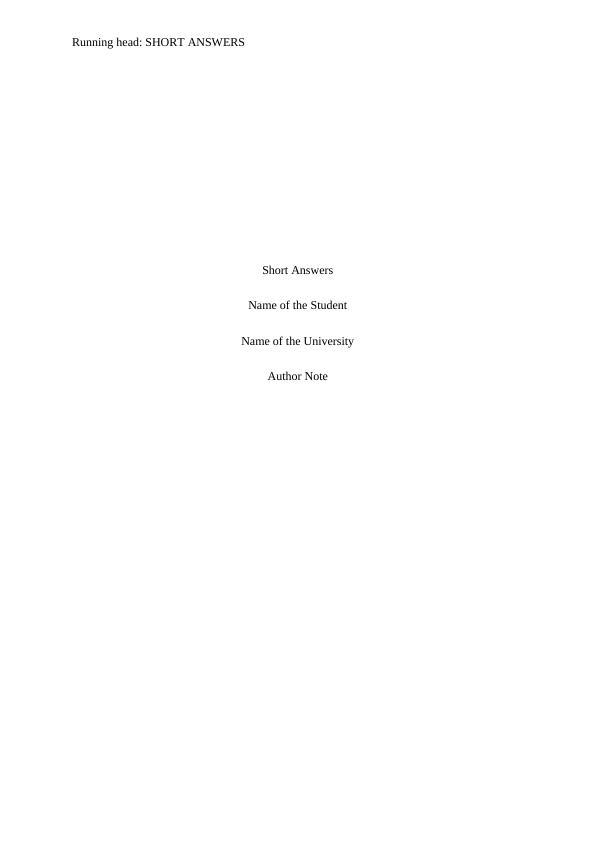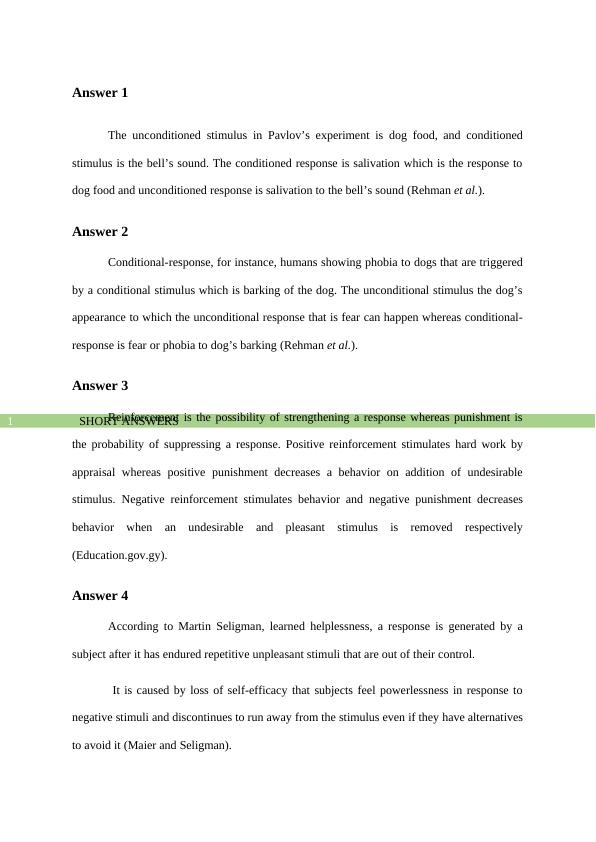The unconditional stimulus the dog’s
Identify the components of classical conditioning and its application to fears/phobias in humans. Explain the difference between reinforcement and punishment. Discuss learned helplessness and the four main processes of observational learning according to Albert Bandura.
4 Pages430 Words24 Views
Added on 2022-08-08
About This Document
please answer this five question
The unconditional stimulus the dog’s
Identify the components of classical conditioning and its application to fears/phobias in humans. Explain the difference between reinforcement and punishment. Discuss learned helplessness and the four main processes of observational learning according to Albert Bandura.
Added on 2022-08-08
ShareRelated Documents
End of preview
Want to access all the pages? Upload your documents or become a member.
Behavioral Perspective Assignment
|5
|657
|139
Learning Concepts Classical Molding
|3
|1171
|32
Introduction to Psychology Theory 2022
|10
|2712
|26
Associative Learning in Psychology
|5
|1008
|84
Operant and Classical Conditioning Theories in Psychology
|4
|726
|410
Operant and Classical Conditioning Theories in Psychology
|4
|732
|267


